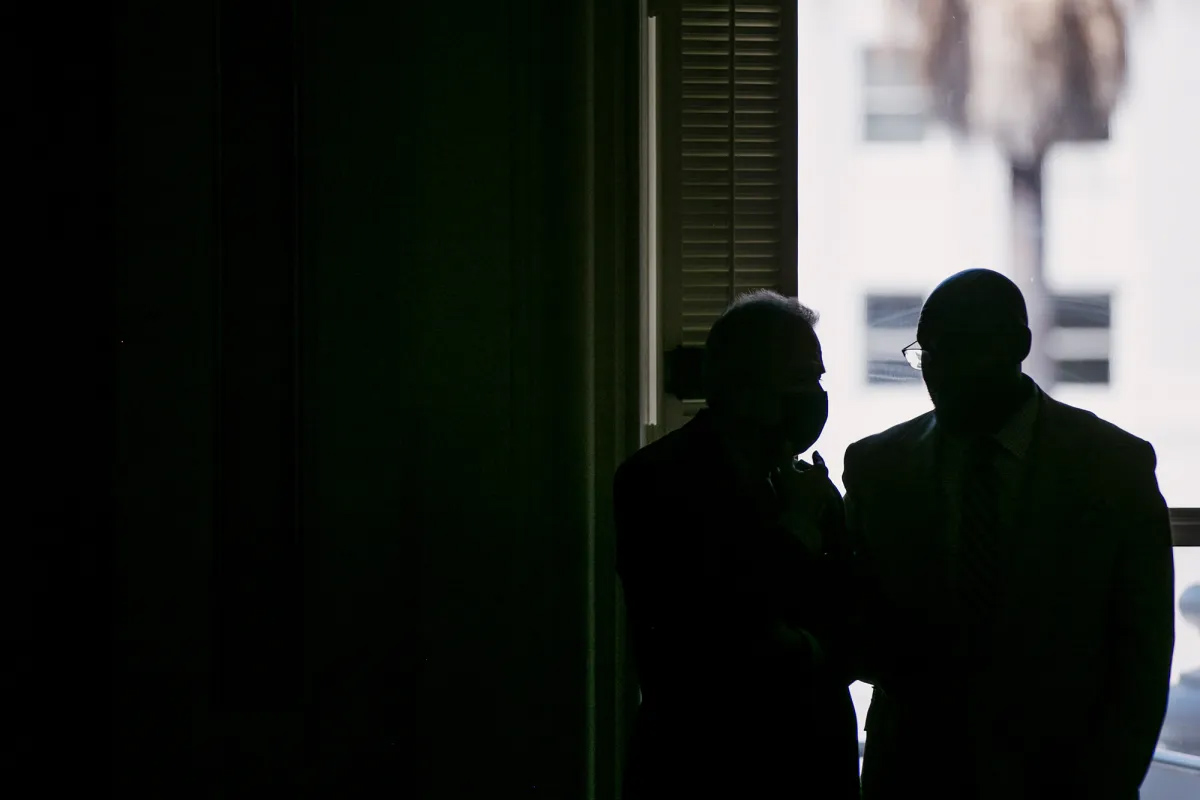
California was once a national leader in requiring public officials to conduct their business — really our business — in public.
Beginning with the Ralph M. Brown Act of 1953, which imposed strict limits on secret meetings by local governments, California’s Legislature adopted several “sunshine bills,” as they were dubbed. The Bagley-Keene Act extended the Brown Act’s open meeting requirements to state agencies, while the Public Records Act guaranteed access to all but a few documents state and local agencies maintained.
Related Articles
Northern California’s newest invaders are beautiful swans. Should hunters kill them?
Democratic lawmakers in Bay Area ‘reluctantly’ support Newsom’s gerrymandering ploy
I lived in an RV. Don’t destroy the unhoused’s last remaining refuges.
While Los Angeles burned, rules to protect homes from wildfires were on hold
Stanford to continue legacy admissions despite state ban
However, while the Legislature was willing to have the sun shine on others, it largely exempted itself. Thus, “caucuses” could meet behind closed doors to decide the fate of legislation, essentially scripting what would be said in open sessions before voting.
Legislative appropriations committees could — and did — secretly decide which bills would reach the floors of both houses and just announce the winners and losers without explanation.
At one time, legislative secrecy was kept in check, more or less, by having two political parties and a substantial corps of reporters.
Party leaders could reveal what their rivals were cooking up and reporters could penetrate clandestine deal-making through sources.
However, as California became dominated by one party and the Capitol press corps shrank due to upheavals in media industries, secrecy became more entrenched.
A case in point is the current effort by Gov. Gavin Newsom and Democratic legislators to draw new maps for the state’s 53 congressional districts with the aim of capturing enough new seats to offset the Republican gerrymandering of Texas congressional districts. California’s new maps are being drafted in secret, a sharp contrast with the months-long public deliberations four years ago of the state’s redistricting commission, resulting in the current maps.
Apparently, the new maps will be revealed briefly before the Legislature votes to place them on a November special election ballot. There are no plans to allow them to be modified before adoption.
What’s happening vis-à-vis redistricting is right in line with the Capitol’s penchant for doing the public’s business in private.
Another example, as CalMatters revealed last year, is an unwritten rule that prohibits legislators from actually discussing changes in their bills during committee meetings, essentially rendering such hearings to meaningless charades.
Still another is the massive project to build a new annex to the Capitol itself. The Legislature has exempted the project from the California Environmental Quality Act and refuses to release details on what is being built or its costs, which appear to be massive, despite the state’s chronic, multibillion-dollar budget deficits. It has also required persons involved in the project to sign non-disclosure pledges to keep details secret.
A pending measure, Assembly Bill 1392, would exempt home addresses of public officials and political candidates from being revealed. While touted as a safety measure, it would make it impossible for journalists to determine whether officials actually live in the districts they represent — something that has popped up numerous times.
Legislators also want to make local government activities less transparent.
One measure now pending in the Capitol, Assembly Bill 699, is the latest of several efforts to allow proponents of local bond measures to omit tax consequences from ballot summaries, but rather place them in voter pamphlets, making them less prominent.
Closing the circle that began with passage of the Brown Act in 1953, Senate Bill 707 would make it easier for some local agencies to conduct their meetings via the internet rather than in person, thus making it easier to mute criticism from the public.
While California’s dominant Democrats often accuse President Donald Trump of undermining democracy, their growing desire for secrecy is equally abhorrent.
Dan Walters is a CalMatters columnist.